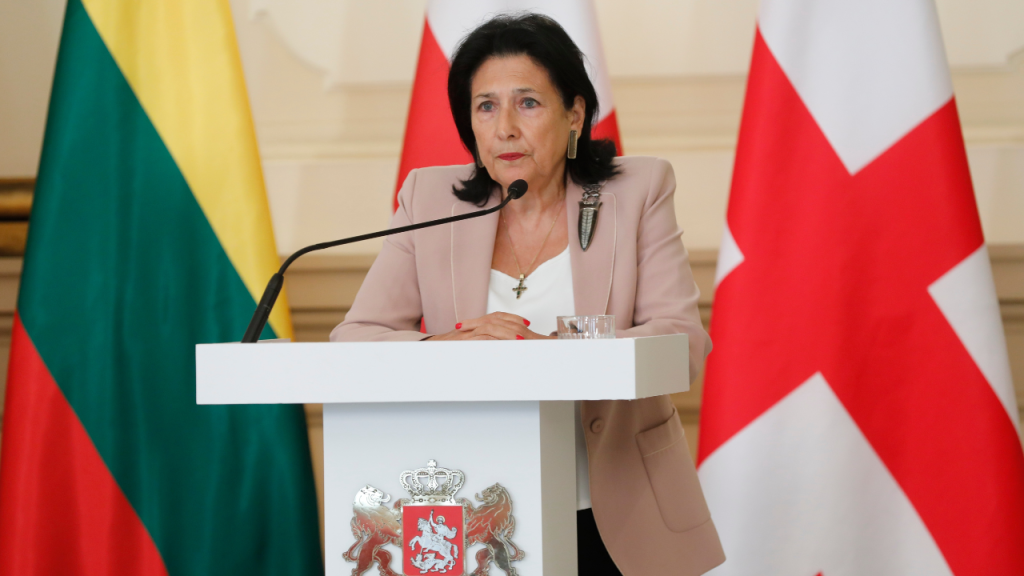President Salome Zourabichvili of Georgia has rejected a media bill passed by the country’s parliament, labeling it as “unacceptable” and vowing to veto it. The bill requires media and nongovernmental organizations to register if they receive over 20% of their funding from abroad. The U.S. has also expressed concerns over the legislation, warning of potential repercussions. Zourabichvili criticized the ruling Georgian Dream party for pushing this bill, which is seen as a threat to free speech and Georgia’s aspirations to join the European Union. She reaffirmed her intention to veto the bill, emphasizing her duty to support European integration.
Protests have erupted in the capital of Tbilisi following the passage of the controversial bill, with huge crowds demonstrating against the government’s actions. Despite strong criticism from both the U.S. and the EU, lawmakers approved the measure 84-30. Zourabichvili expressed disappointment in the authorities for not meeting the expectations of the country, which desires closer ties with Europe. The bill has been likened to “the Russian law” due to similarities with legislation used by Moscow to crackdown on independent news media and activists. European Council President Charles Michel emphasized the importance of respecting the rule of law and democratic principles for Georgia’s EU aspirations.
The Georgian Dream party faced pressure to withdraw a similar bill last year after street protests, but they have now passed a nearly identical version. Renewed demonstrations have been ongoing for weeks, with clashes between protesters and police using tear gas and water cannons. Zourabichvili highlighted the urgency for Georgia to focus on passing laws necessary for accession talks with the EU at the end of the year, such as justice reform and combating corruption. Instead, the parliament has focused on legislation that goes against European values, as stated by European partners.
The White House expressed deep concern over the legislation, noting that it undermines democratic values and would distance Georgia from the EU and NATO. Enacting the law could lead to a reassessment of the relationship between the U.S. and Georgia. U.S. Assistant Secretary of State for Europe and Eurasia Affairs, James O’Brien, warned of potential restrictions if the law moves forward without conforming to EU norms or if there is violence against peaceful protesters. Zourabichvili echoed these sentiments, emphasizing the need for Georgia to align with European values and objectives to advance its EU candidacy.













